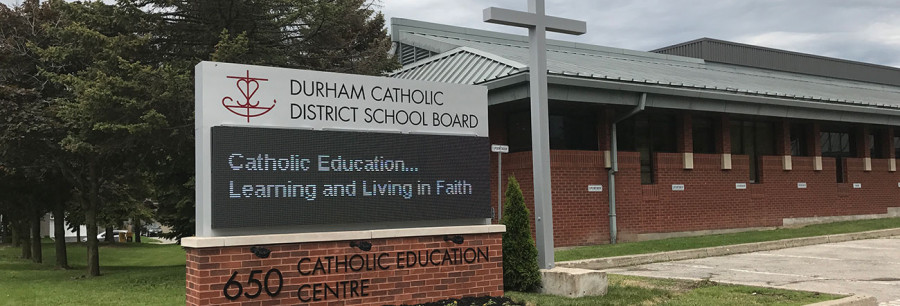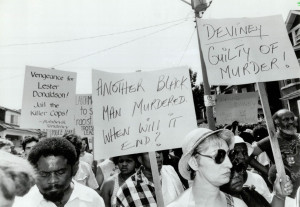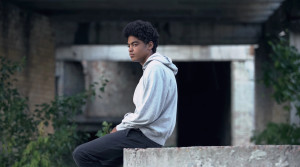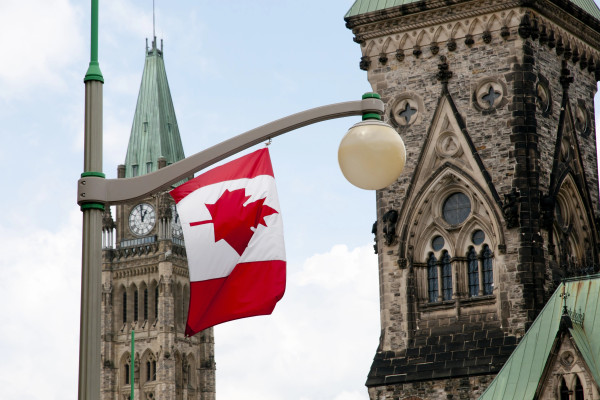They've removed terms like white supremacy, colonialism, anti-Black racism, microaggression, reparation, intersectionality and restorative practice due to the concern that it reflects “critical race theory”, an academic theory based on the idea that racism is systemic and embedded in all of our institutions. You may have heard that critical race theory has been recently banned from schools in a few states south of the border.
The policy also removed this entire paragraph: “The board recognizes the presence of biases, barriers, and power dynamics that have historically excluded Black and racialized students and staff. It is important to acknowledge the legacy of colonialism and the role of white supremacy in systemically embedding racism, and allowing practices and approaches rooted in dominant culture to reinforce the prioritization of privileged voices, concerns, potentials and achievements over others.”
As a social worker & psychotherapist, and an equity consultant, I was initially shocked, but also angry becasuse I have two children who attend a school within the DCDSB.
When I shared this anger on social media, the school board responded advising that I should contact their Human Rights and Equity Advisor.
So I did. What I found out made me even angrier.
When I finally got on a call with the advisor, who by the way is just a few weeks into this job, he let me know he had just come from a meeting about my very own social media post.
He patiently explained the policy process to me, noting that it had gone through the first reading on March 8, 2021, and the second reading on May 17, 2021. He noted that each outcome was posted on their website for public input. He noted that at the final reading on May 9th, members of the public expressed concerns about some of the language and that the trustees allowed the amendment in order to “protect the interest of members in the community” knowing that there will be a review in the Fall. He noted that this was preferable, rather than leaving the community without a policy in place, rather than them having to wait until the Fall.
I thanked the DCDSB’s brand new Human Rights & Equity Advisor for his time and politely told him that his explanation, while helpful, was terribly insufficient. After almost an hour on the phone with the Advisor, the DCDSB send me a DM on Instagram stating that they had just issued an updated statement on their policy and invited me to read it.
The statement summarized what their Advisor shared with me but also outlined that the Trustees had “received several electronic communications from members of the public urging them not to pass the policy as written, alleging that language was not consistent with Catholic teachings.”
On social media and via email and phone calls, a slew of Black parents and advocates continued to critique this anti-racism policy that doesn’t mention anti-racism! And by the following day, the DCDSB responded to all of this advocacy by posting another statement on their website - this time an apology - noting that they have “heard the concerns” about their interim Anti-Racism Policy, that they understand that it has “hurt” the community and that they are sorry and deeply regret it.
This is insulting. The DCDSB community has been waiting for over a year for a strong Anti-Racism Policy. Waiting a few more months to create an acceptable policy would not have been much of a stretch. It is clear that these statements are a result of a PR spin as the DCDSB tries to manage its sullied reputation.
In 2021 a high school in this Board had to recall their yearbooks after a racist comment had been attached to the picture of a Black student.
My older son has been in his DCDSB school for 7 years and has never experienced a Black member of staff in his school. I have noticed that it has begun to impact his perception of the world. His father and I are doing what we need to do as parents to ensure that he is raised with a healthy sense of self and with pride in living in this country as a Black boy. It is essential - given this reality - that he and his peers are supported with a strong Anti-Black Racism Policy that protects them from racial discrimination that is likely to impact them overtly or otherwise.
Racial Trauma, or Race-Based Traumatic Stress, is the term used to describe the stress that racialized individuals go through when they are faced with racism. The challenge is that many individuals think that racism only exists when an overtly harmful act of discrimination occurs, like a “whites only” water fountain or some type of physical violence. As a result, individuals are either unlikely or unwilling to see that racism is still very much alive today in our systems, including our education system.
In the DCDSB there are 39 elementary schools, 7 secondary schools and 21,150 students that are increasingly diverse. However, the Board of Trustees, which is tasked with creating this Anti-Racism polic,y appears to have zero Black people on it (apart from one student trustee). It was indeed the wise thing to consult closely with the key racialized stakeholders in the community (and there are many).
However, after putting together a policy that was approved by the stakeholders and then amending it to remove the most integral portions of the policy, was disrespectful and an act of systemic racism, resulting in ongoing racial trauma - specifically for the Black community who already has a healthy skepticism for white leaders in large organizations who historically have harmed the community with their policies.
The trauma related to this situation has multiple levels.
- Parents do not feel safe sending their children to school as the white staff and students will have little consequence for treating children unfairly due to their race.
- As a result, racialized children have to police their behaviour to ensure that they are less likely to stand out in a negative way. Something as mundane as laughing too loudly can be pathologized, as they have no policy to support them and guide the responses of the school staff and administration.
- Parents who volunteer on committees like the Anti-Black Racism and Black Excellence Advisory Committee feel gaslit as they have been ignored after working tirelessly to help create this policy, only to have it grossly diluted of its meaning.
- Racialized parents are unable to rest. To relax. To laugh. To socialize. To be creative. To spend precious time with their children. All because they are having to use their spare time to be angry at the current reality. To advocate. To call for meetings. To organize. All in an effort to try to ensure that their children receive the fair treatment that they are entitled to.
One more thing, it is not lost on me that the Human Rights and Equity Advisor is a Black man and that the DCDSB is now suggesting that anyone with concerns regarding this policy should contact him directly. This Board has multiple departments like PR, HR, Finance, Communications etc., however, the Advisor here is one person. He has no department, he has no team. And they have him defending decisions that happened a month before he took his position. Given the opportunity, I am sure he would do a stellar job, but unfortunately, they have set him up to fail as he has no choice but to publicly support his organization's mandate.
As a Black woman, this is hard to watch and adds another complex layer to the racial trauma that we endure daily.
2020 was a hard year for most of us in the Black community, and many organizations have been revamping their policies, either from genuine concern or for financial gain.
One would hope that our trauma would have decreased significantly.
Why are we just as tired?

 By
By 





